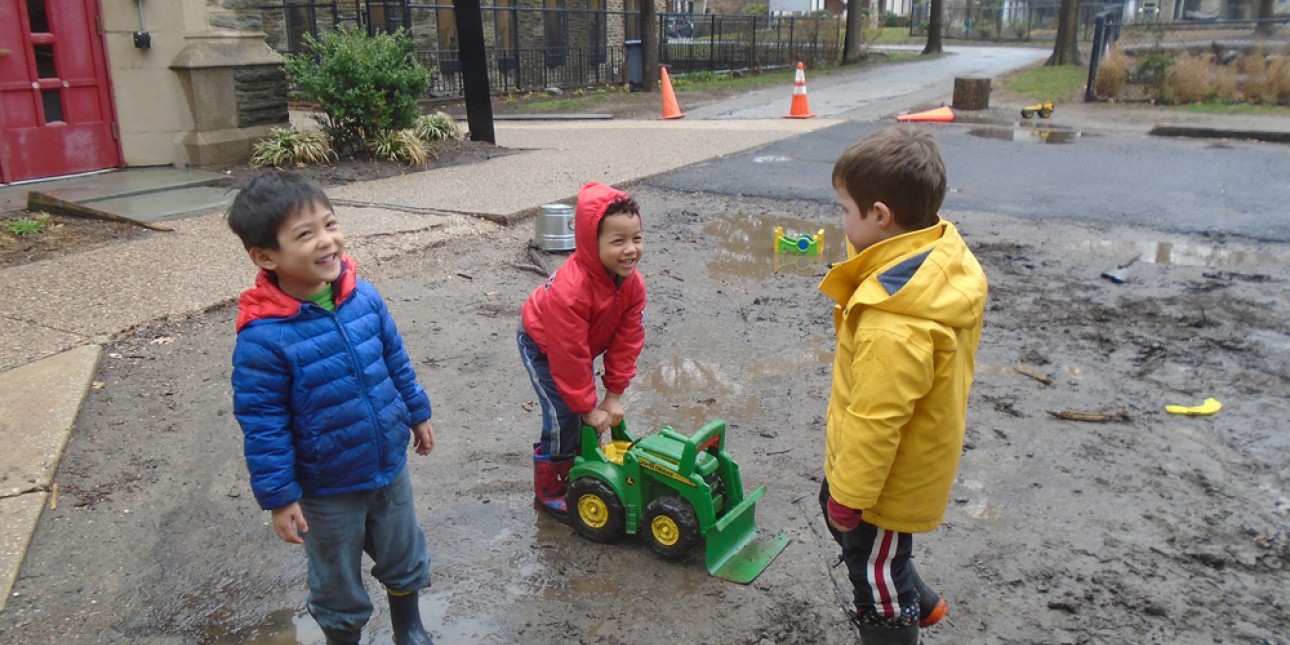In the Classroom: The Roadrunners

Written by Roadrunners Teacher Danny Galpern
Using Laughter to Resolve Feelings
Children are naturally joyful and excited. But if something scary or painful happens, they can feel alone with powerful emotions. As Preschool Program Coordinator Tamara Clark wrote in her recent blog post, children need to “feel your feelings” with big cries or tantrums to get the feelings out.
As adults, it can be hard to find time in jam-packed days to sit with our child and let them cry or tantrum for what feels like never-ending amounts of time.
Playing in a way that gets your child to laugh can be a powerful tool! If you can find a way to lightheartedly play with your child about the things that they struggle with, while reminding them how much you like them, your child’s laughter can help get them back to being joyful and at ease.
Recently the Roadrunners were playing on the blacktop, when one child began to disrupt what other children were doing. When the others expressed frustration with the child’s behavior, this child laughed and said “I don’t care.”
In these situations, it’s tempting as an adult to get harsh and lay down the law. “That’s unkind! We don’t treat our friends like that.”
But really, this type of behavior may be an expression of how a child is feeling. In this case, she felt disconnected and alone.
Consider acting out as one way a child waves their hand, saying “I need a help! I’m stuck doing something negative and I can’t figure my way out of it.”
With this in mind, I walked over and hugged this Roadrunner close. I saw the chance to respond playfully to help her laugh her way back to feeling connected. Here’s how it played out:
Me: It looks like you’re having a hard time. I’m here for you, but I can’t let you hurt other people.
Struggling to get out of my arms, she: “I don’t care. I hate you.”
Continuing the hug, me: “All I want is for you to be right here with me. Your so fun, smart, and I love being with you.”
She continued to struggle.
In my most playful tone, me: “Oh man, I will just be SO sad if you get out of my arms.”
And as I let her go, me: “NO she’s getting away! I just want to be right next to my friend!”
She laughed and ran away. I chased and continued to be so happy and excited to be right next to her. I was careful not to be so fast that I caught her immediately or dominated the game. I wanted her to be in control.
Laughter is powerful. Letting her laugh about being liked and loved helped her move out of feeling alone and back to knowing how important and connected she is. After a little more chasing (and laughing), she was calmer, more relaxed, and able to work together with other children again.
When our children are stuck in negative behaviors, that’s when they really need us. It is often a good time to strategize playful ways to help children remember that we like them, that we want them to have their feelings, to help them laugh their way back to feeling connected and joyful.
My thinking here was based on "playlistening," an approach developed by Hand-in-Hand Parenting that shows adults a way to help children resolve tensions through laughter and play. We recently added materials from Hand-in-Hand to our parent library and are excited to share the information!
Classrooms